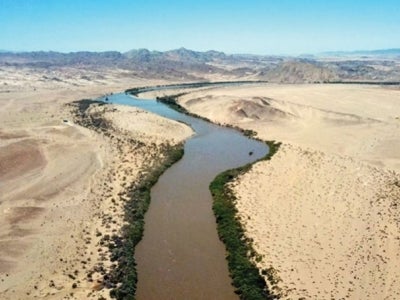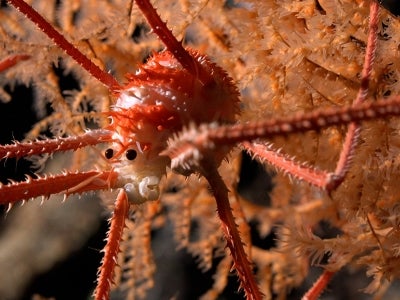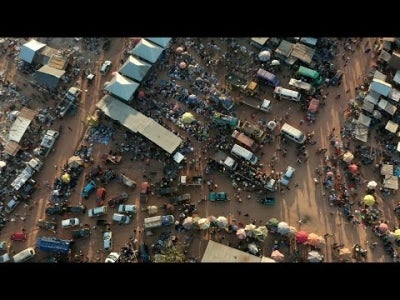
Together, the Large Marine Ecosystems of the Caribbean and the North Brazil Shelf comprise a region as rich in biodiversity as it is in geopolitical complexity.
The 44 million square kilometer area is shared by 26 states and 18 dependent territories and is home to some of the most important aquatic ecosystems on the planet – including seagrass meadows, coastal lagoons, and open water habitats. The region contains 10 percent of the world’s coral reefs, and 20 percent of the remaining mangrove forests, globally.
To say a healthy marine environment is vital to life in these countries would be an understatement, given their dependence on marine-based tourism and fisheries and the large number of people – 95 million – who live within 100 kilometers of the coast.
Yet the marine resources these communities depend on are increasingly at risk by human activities, including coastal development, land and sea pollution, over-fishing, and climate change.
Declining ocean health has also triggered a vicious circle: falling yields and climate-linked disasters make it harder to earn money from traditional marine activities, which leads people to further increase their pressure on marine resources and their environment, leading to more damage.
Addressing and changing these trends will require good governance, improved management, and trust-building between the many countries, organizations, and communities with a stake in the health of this vast marine space.
These have been the aims of engagement between the Global Environment Facility and UN Development Programme (UNDP) with national governments, civil society organizations, and regional and international partners, which have been working for years to lay the foundation for scaled-up efforts to build a more sustainable, blue economy in the wider Caribbean region.
In June 2021, as the multilateral fund marked its 30th anniversary, the GEF Council agreed to support a new UNDP-GEF initiative to build on these past efforts, known as PROCARIBE+.
PROCARIBE+ stands for “protecting and restoring the ocean’s natural capital, building resilience and supporting region-wide investments for sustainable blue socio-economic development.”
The project will bring together more than 20 countries and multiple UN and local and regional agencies with the goal of achieving the regional long-term vision of “a healthy marine environment that provides benefits and livelihoods for the well-being of people.”
It is expected to help regional efforts towards the

“Better collaboration between international organizations will help advance the region’s transition towards sustainable ocean-based development
The term “blue economy” encompasses all income-generating activities tied to the ocean – including fishing, shipping, marine and coastal tourism, and offshore wind farms – that can be implemented in a sustainable way.
It recognizes the enormous importance of the bodies of water covering 72 percent of the Earth, that provide livelihoods for hundreds of millions of people as well as a means of transport for 70 percent of global trade flows.
While there is growing awareness and application of the blue economy concept around the Caribbean and Atlantic, efforts to encourage the sustainable use of marine resources have often been hampered by factors including a lack of capital, inadequate data gathering, and limited public awareness of just how much value and opportunities marine ecosystems can provide.
The expanded UNDP-GEF efforts under PROCARIBE+ will include training on environmental reporting and natural capital accounting to increase awareness about the value of marine natural resources, plus support for participatory planning exercises for the more sustainable use of marine space. The PROCARIBE+ project will also work with the GEF Small Grants Programme to engage communities on ways to preserve marine and coastal habitats in support of improved health and livelihoods.
PROCARIBE+ will also support regional efforts to build a stronger and more effective network of marine protected areas. Efforts will also go into improving the tracking and monitoring of fishing activity, and to countering ghost fishing – a phenomenon where marine animals get stuck in lost or discarded traps and fishing gear. There will also be initiatives to improve the flow of blue economy investments, including through the creation of micro-financing schemes, the mobilization of small grants and loans, and the testing of a private sector or blended finance funding mechanism.
These efforts will be supported by region-wide knowledge sharing, anchored in
Carlos Manuel Rodriguez, CEO and Chairperson of the GEF, stressed the need for countries to share with and learn from each other in pursuit of 2030 environmental goals, particularly when it comes to the ocean and marine protected areas.
“Developing a sustainable blue economy is a major priority and holds tremendous potential for the wider Caribbean region and its marine resources,” Rodriguez said. “We can achieve our 2030 goals if we continue to build awareness about, and trust in, solutions that support both people and nature. The PROCARIBE+ project and its knowledge sharing components will be a vital part of this.”


